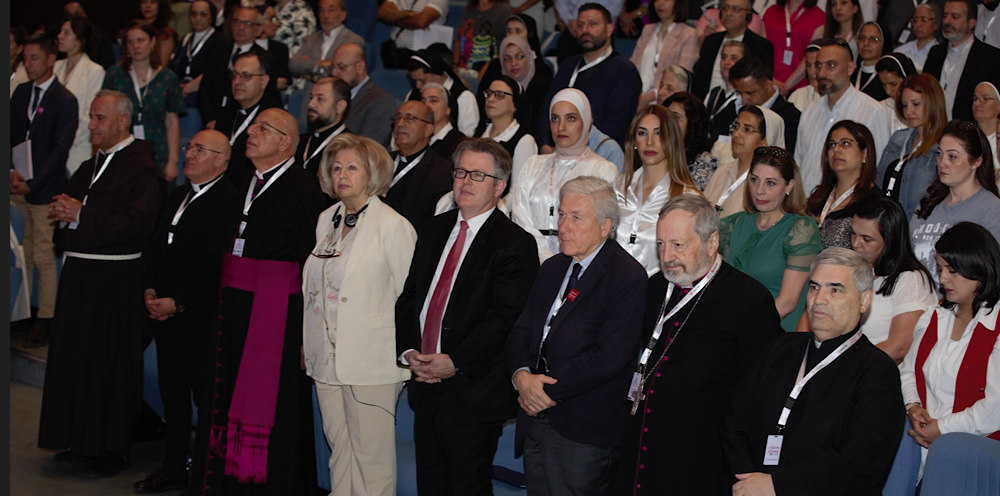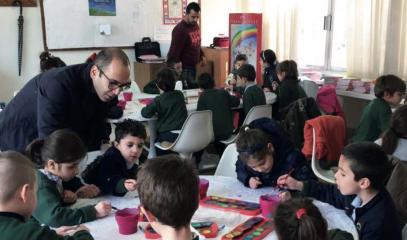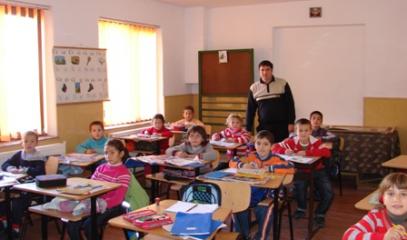Francophone Catholic schools alternative to exodus of young people from Middle East
The fourth symposium was held over the weekend in Amman, attended by more than 250 representatives from the various countries in the region. Funds raised by L'Œuvre d'Orient enabled the development of 211 educational institutes and projects. There are 400,000 students scattered in 550 schools, which constitute a "stability factor." The "mission" is to provide excellent educational and vocational opportunities.
Amman (AsiaNews) - Organized by L'Œuvre d'Orient, the fourth symposium of Francophone Christian schools in the Middle East was held June 16 and 17 at Terra Sancta College in Amman, Jordan.
It was attended by school principals from Lebanon, Syria, the Holy Land, Turkey and Jordan, as well as representatives and general secretaries of Catholic schools and many young people from Francophone Catholic institutions who have decided to remain rooted in their countries instead of choosing migration like other of their peers.
The session, like the ones that preceded it in Paris in 2014 and 2016 and then in Beirut in 2018, made it possible to improve coordination among the different realities in the region.
The aid granted is generally for renovating schools, paying teachers, supporting school transportation for children, and school and educational materials, including computer equipment.
Since 2020, this effort has been financed equally by the French government and L'Œuvre d'Orient: a sum of 8.2 million euros, which has enabled 211 schools and projects to be supported.
This year's symposium brought together 250 participants: nuns and religious, priests and lay people whose mission is to educate young people in North Africa and the Middle East (Egypt, Iraq, Israel, Jordan, Lebanon, Morocco, Palestine, Syria, Tunisia and Turkey).
This counts for a total of about 400,000 pupils spread across 550 Francophone schools, including 329 in Lebanon, 170 in Egypt, 35 in Jordan and the Holy Land, six in Iraq and eight in Syria.
The theme of this year's conference was "The Future of Young People in Christian Schools in the Middle East," and highlighted in particular the important role Francophone Christian schools play in ensuring the stability of the populations where they are located.
With young people increasingly tempted by the prospect of emigration, the mission of Francophone Christian schools is precisely to provide excellent educational and vocational opportunities at the local level.
The meeting featured a speech by the French head of state, Emmanuel Macron, read by the French ambassador to Jordan, Alexis Le Cour Grandmaison: "France has a long-standing commitment to the Christians of the East... This long-term commitment," the text continues, "has maintained all its vitality and momentum. I have seen it in Lebanon, as the country continues to plunge into an unprecedented crisis. I have seen it in Iraq, where Œuvre d'Orient is doing remarkable work in support of Christian communities and religious minorities, who have suffered particularly under the yoke of Daesh [Arabic acronym for the Islamic State]. I could also cite the quality, strength, and usefulness of his work in other countries in the region, from Armenia to Egypt," said French leader," according to whom "diversity" is "inseparable from the identity, history, and culture" of the Middle East. And it is precisely this diversity that is "an essential condition," Macron concluded, "for its development toward peace, stability, tolerance and prosperity.
Speaking at the beginning of the work, Haïfa Hajjar Najjar, Jordanian Minister of Culture, stressed that Amman "could not have existed, nor resisted, without this work, without this cooperation that we are doing together with you, the Christian schools [...]. It is thanks to the Christian schools and Christians in the Middle East that we can peacefully coexist today."
Armelle Millcent, communications manager of L'Œuvre d'Orient, recalled how Francophone schools are "fertile ground for improving interreligious and inter-community relations and are a guarantee of cultural and denominational pluralism." In conclusion, the president of the Catholic body Msgr. Pascal Gollnisch addressed the assembly, asking "what kind of society do we want for the youth of the Middle East? Christians," he concluded, "must be able to play an active role in these societies. We must overcome the difficulties. The strength of Christians in the Middle East is to put themselves at the service of the people in the name of the Gospel."









.png)










